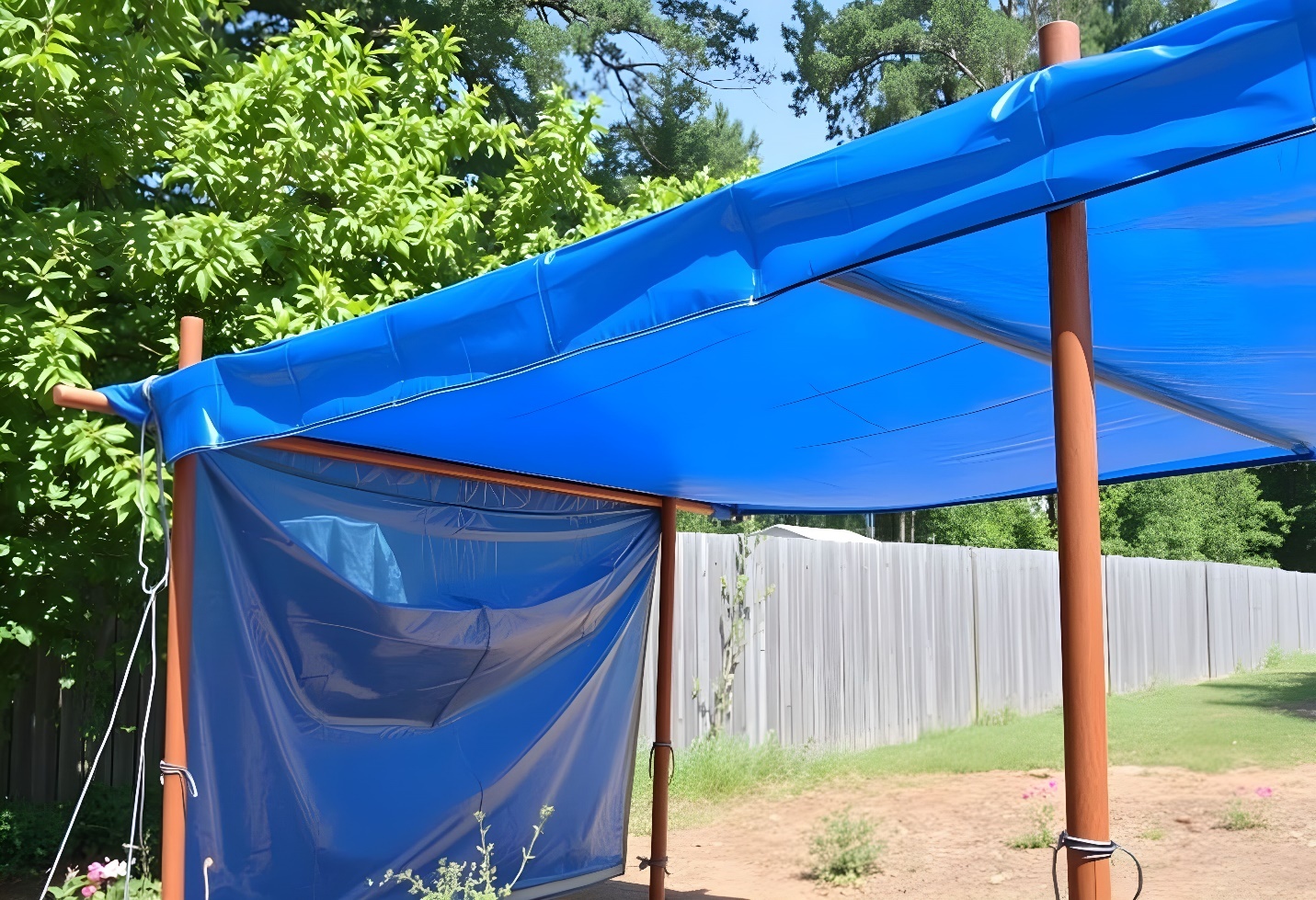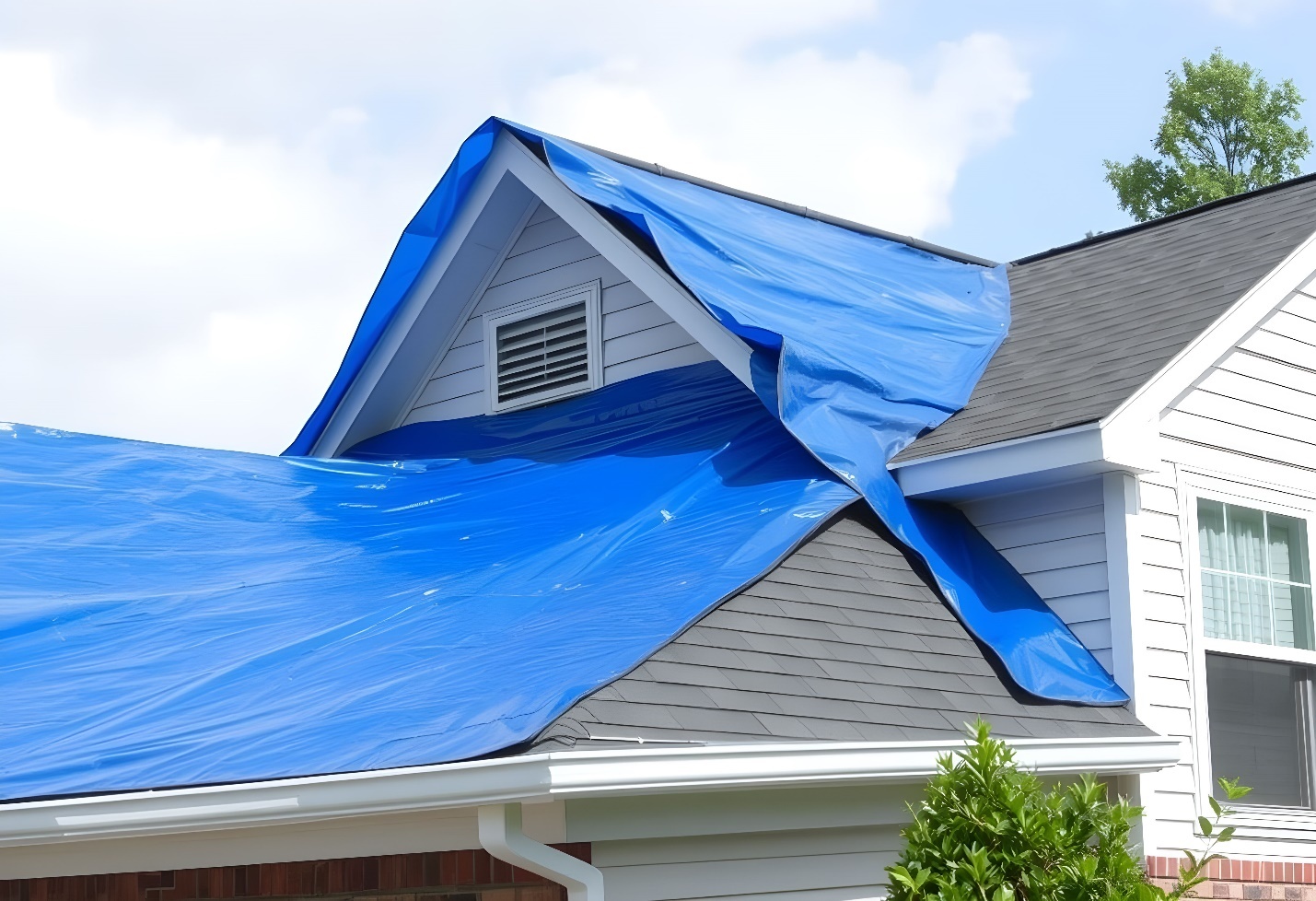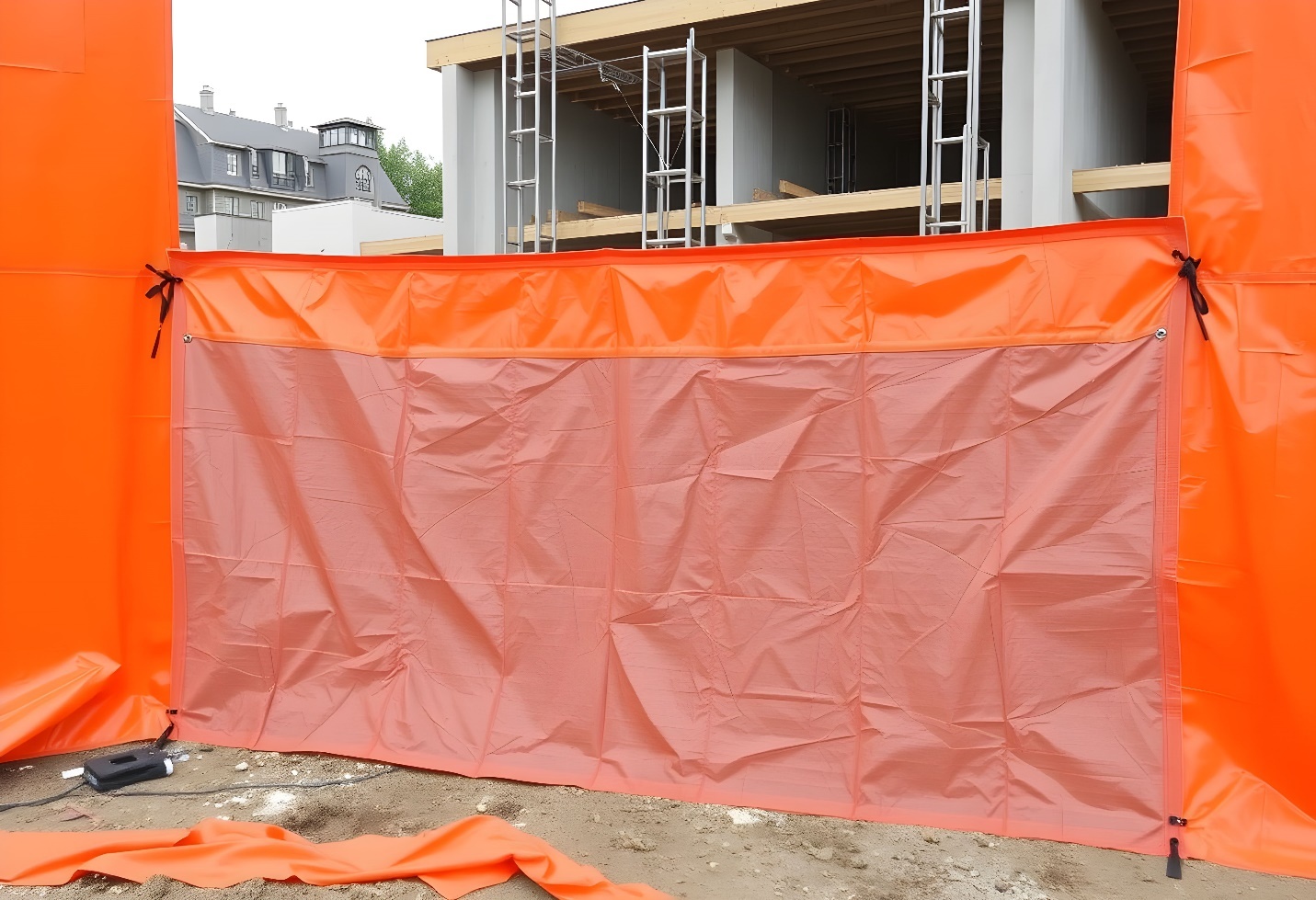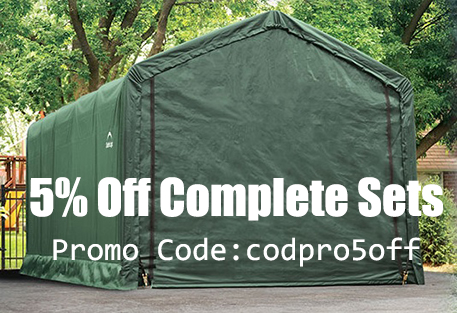PVC vs. Vinyl Tarps: What's the Difference and Which One Should You Choose?
Apr 15th 2025
If you've ever needed a tarp to cover your truck bed, protect your tools or keep a job site dry, you know there are distinct differences between tarp types. The right tarp can mean the difference between keeping your gear protected and dealing with water damage, UV exposure or flapping material that tears in the first strong wind.
PVC tarps and vinyl tarps are two heavy-duty options that often get mentioned in the same breath. Many folks use the terms interchangeably. So, what is the difference between PVC and vinyl tarps? Quite a bit, actually. While they both fall under the broader "vinyl" category, the construction, performance and ideal uses can vary significantly. Knowing the difference can help you choose the right tarp for the job and avoid wasting time or money.

What Are PVC Vinyl Tarps?
PVC tarps, short for polyvinyl chloride tarps, are a tough, heavy-duty option under the larger family of vinyl tarps. Think of them as the rugged workhorses of the tarp world. While all PVC tarps are vinyl, they're not all made with PVC, so it's important to understand what sets them apart.
PVC vinyl tarps combine polyester scrim (the strong woven base) with a layer of PVC film that's heat-fused to the surface. This creates a tarp that's incredibly strong, waterproof and built to handle the worst conditions. If you're looking for a tarp that can stand up to constant use, harsh sun, heavy rain and even exposure to chemicals, PVC is a top contender.
These tarps are a staple in industrial settings, including construction sites, flatbed trucking, roofing projects and equipment storage. They're also commonly used for agricultural purposes, like protecting hay or livestock enclosures. You'll even find them on canopies and shelters that need to stay up year-round.
The pros of PVC tarps are:
- 100% waterproof. No leaks, no seepage.
- Highly chemical and UV resistant. They won't break down in harsh conditions.
- Durable and abrasion-resistant. Built for serious wear and tear.
- Flexible in cold temperatures. They stay usable even when the mercury drops.
Of course, no tarp is perfect for every job.
The cons of PVC tarps are:
- Heavier-than-lighter-duty tarps, which can make them harder to move around.
- More expensive, since you're paying for durability and long-term performance.
In short, if you need a tarp that's "tough as nails" and can handle just about anything you throw at it, a PVC vinyl tarp is worth the investment. This is the type of tarp material you can count on when the job has to be done right.

What Are Vinyl Laminated Tarps?
Vinyl laminated tarps are a popular middle-ground option for those who want something tougher than a cheap poly tarp but don't need the full weight or price tag of heavy-duty PVC. These tarps bond layers of vinyl film onto a polyester mesh or scrim using heat and pressure using a process known as lamination. This creates smooth, flexible material that offers decent strength without going overboard on weight or cost.
Because of their construction, vinyl laminated tarps are ideal for lighter-duty to mid-duty jobs where you need something that holds up, but you're not putting it through extreme punishment. Think temporary roofing, yard cleanups, seasonal equipment covers or covering materials or firewood. They're also a solid choice for short-term canopy tops or sidewalls when you want something waterproof but easy to handle.
Pros of vinyl laminated tarps include:
- Affordable. Less expensive than PVC-coated tarps but still more rugged than your average poly tarp.
- Water-resistant. They'll keep out light to moderate rain just fine.
- Flexible and lightweight. Easy to fold, store and handle on the go.
- Decent UV resistance. Suitable for limited sun exposure.
However, like most things, there are trade-offs. The biggest downside is that laminated tarps can start to delaminate over time, especially under heavy use, prolonged UV exposure or extreme temperatures. That peeling effect weakens the tarp and makes it more prone to leaks or tearing.
Vinyl laminated tarps are a solid choice when you're looking for something cost-effective, weather-resistant and sturdy enough for weekend work or short-term coverage. Just don't expect them to last as long as a coated tarp under tough, everyday abuse.

What Are Vinyl Coated Tarps?
If you're looking for a tarp that can take a beating and offer solid workday performance, vinyl coated tarps are the top-shelf option. Choose these for heavy-duty and long-term jobs.
Unlike laminated tarps, which have vinyl layers pressed onto the surface, vinyl coated tarps fuse liquid vinyl directly into a high-strength polyester fabric. This coating process saturates the fibers, creating a stronger bond, giving the tarp a smooth, solid finish that won't peel or crack easily. The result is a tarp that has a high level of weather resistance.
You often see vinyl coated tarps used in commercial and industrial settings, like trucking rigs, construction sites, athletic field covers and agricultural operations. They're also great for permanent canopy roofs, long-term equipment storage or any job where durability is non-negotiable.
The pros are impressive:
- Exceptionally durable. Holds up to constant use and rough handling.
- Tear- and abrasion-resistant. Won't shred in the wind or snag easily.
- Superior UV protection. Resists sun damage and fading.
- Waterproof and weatherproof. Ideal for year-round outdoor coverage.
- Long lifespan. Built to last for years, not months.
Of course, with all that strength comes a little extra cost. Vinyl coated tarps are more expensive upfront, but for long-term or demanding jobs, they often pay for themselves by outlasting cheaper tarp options several times over.
If you want a tarp that you can put up and forget about and that's capable of providing excellent protection during rain, shine or snow, vinyl coated is the way to go. It's an investment, sure, but it's one that pays off every time your gear stays dry and protected.


